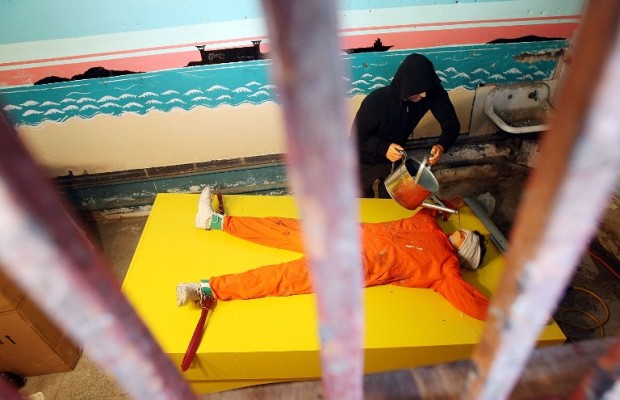
Artist Steve Powers’ installation “Waterboard Thrill Ride” is seen at the Coney Island arcade August 14, 2008, in the Brooklyn borough of New York City. After a dollar bill is fed into a machine, the creation features robots performing the controversial interrogation technique. AFP
WASHINGTON, United States — The US Supreme Court on Monday turned back an appeal by rights groups seeking to make public a damning report on the CIA’s post-September 11 torture program, ensuring it will remain secret.
The court rebuffed arguments from the American Civil Liberties Union that the highly classified report, compiled in 2014 by the Senate Intelligence Committee, should be released based on US government transparency rules.
READ: Trump says torture works but will follow CIA, Pentagon advice
“We are disappointed by this major setback for government transparency and accountability. The full report is the definitive account of one of the darkest chapters in our nation’s history, and the public has a right to see it,” said Hina Shamsi, director of the ACLU National Security Project.
The Supreme Court’s decision left in place a ruling by the federal court in Washington that judged the report did not fall under rules that require certain government records be made public.
The 6,700 page report examined in depth the Central Intelligence Agency’s program of secret detention and torture of Al-Qaeda suspects in the wake of the 9/11 attacks.
It details the rendition of suspects to CIA “black sites” and the use of illegal torture methods like waterboarding on them to extract information.
It also reportedly deeply questioned the effectiveness of the techniques, later banned by the Obama administration.
About 500 pages were declassified for public release when the report was completed, with enough information to bring heavy criticism on the CIA and the government of president George W. Bush, which authorized the program.
The CIA has rejected some of its conclusions, and some politicians say it supports arguments for torturing suspects.
Only a handful of copies of the report exist, distributed to several government departments and intelligence bodies.
Fearing that those copies could be destroyed to eliminate any detailed record of the torture program, last December president Barack Obama said one copy would be held in his presidential library, to be built in Chicago.
Obama refused to declassify the report, but said it would become open to the public in 12 years. CBB